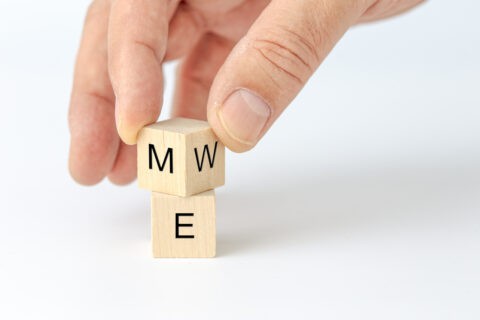
Are you in the process of beginning again? We know all about starting over. Early in Sean’s life, he moved to 17 different homes between the ages of 5 and 18. After a while, moving to a new space for him didn’t seem like a big deal. In fact, he was invigorated by conquering new places. Fast forward to our parenting years. While our children were in elementary school, we needed to move to keep them in a preferred school district. But our children struggled as we packed up in preparation to lease a new home. What blew our minds was that the new residence was a few blocks down the road within the same neighborhood. He then understood that even if you’re moving a block away, the moment you decide to relocate, you’re beginning again. Whether being promoted on the job or changing careers altogether, you’re in a phase of starting over.
There’s a toll that transition takes on the soul. Although the promotion comes with higher pay, this new role is not your norm. Sure, the check is more significant, but so are the consequences that accompany a new level of decision-making. As well as the pressures of learning your new role and coworkers. Without giving yourself time to process what’s happening personally and corporately, success may boomerang into future burnout. It may cause feelings of inadequacy or discontentment. For instance, a couple has invested twenty-two long and, yet, fulfilling years raising their child. It’s time for the kids to venture out into the world and move out of the house. One spouse is left wondering why the other isn’t leaping for joy. It’s good news. We’ve successfully raised a child; now, let’s run around the house naked! Meanwhile, the other spouse must process the grief of transitioning from their nurturing role to…well, what now? What fills the void now that the kids are out of the nest? Who are you now that the daily routine, the high school events, and people in the house are now gone? In some cases, couples struggle so greatly with children aging out of the house they may experience empty nest syndrome. Where parents are overcome with feelings of loneliness and grief after their kids depart from the home.
Couples in this season need to settle new roots within their new reality. Embracing the challenge of discovering new hobbies and enjoyable habits as a result of their newly found freedom. We’ve accepted the revelation that even good change is a great challenge to our emotional state of well-being. Imagine then how difficult the road ahead is in the aftermath of a marriage crisis. So here are a few questions to help you discover your new normal:
1. Why is our relationship valuable?
The meaning matters much more than we may realize. If you’re not invested in the plot behind your own story, why would you fight to reach the end of the movie with passionate anticipation? We’ve discovered that couples who fail to grasp the significance of their marriage covenant are more susceptible to entertain the idea that starting over might not be worth it. If I were to ask you, “Why should you stay together?” Could you articulate the good that will come as a result of your relationship? It must be more than the benefits, combined income, or staying the course for the sake of the kids until they move out of the house.
2. What have we learned from the past?
Some people say, “Experience is the best teacher,” but we believe learned experience is the best teacher. You’ve heard the old expression, “Hindsight is 20/20.” And often, our mistakes make the road we should’ve taken clearer. But instead of kicking yourselves for stupid tax, maximize the gift of hindsight. Take advantage of the adversity. Learn from your shameful mistakes and even your bravest moments. To overcome dysfunctional habits, try to find the common denominator that keeps the hamster on the wheel. Learn to take a few steps back, pray, and assess similarities within your weaknesses. Are there lessons that are screaming loud and clear that we continue to ignore? Put your foot down and say we refuse to repeat the past! Now that we’ve exposed the truth, we’ll be changed by it. We refuse to be married for the next ten years and still be immature in this area.
If you want to outgrow where you’ve always been, you must develop a habit of acknowledging the truth of who you both are now and make the necessary changes to get your marriage where it needs to be. It’s ok to recognize when it’s time to get to know one another all over again. To fall in love with the person your spouse is currently, rather than who he or she used to be.
At this stage in the our marriage, we’re walking up the edge of the hill. Hitting the tip of the midlife, and honestly, we feel more influential than ever. We’re not sitting back passively, allowing life to happen to us. We refuse to be swallowed up in marriage boredom. Intentionality is the key. Being brave enough to reinvent and rebrand who we are in terms of our age and stage of life.













